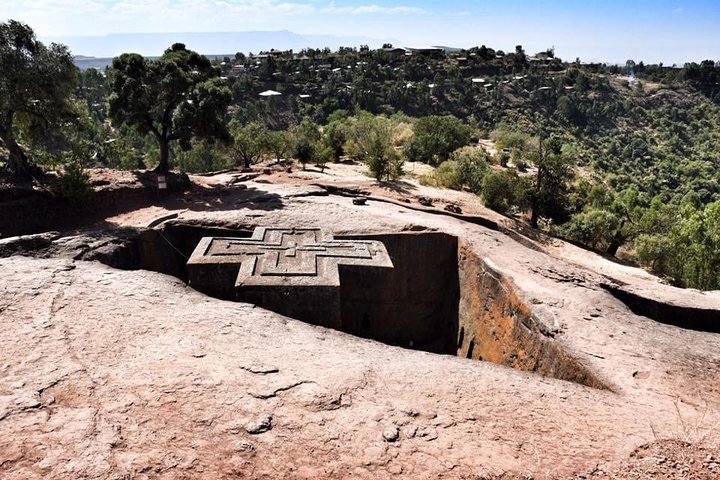Exploring the Timeless Wonders of Lalibela: A Journey Through Ethiopia’s Spiritual Heart
Drawn by the allure of ancient architecture and spiritual traditions, I embarked on a journey to Lalibela, Ethiopia. What I discovered was a mesmerizing blend of history, faith, and sustainability that left a lasting impression.
A Journey Through Time: The Rock-Hewn Churches of Lalibela
As a wildlife photographer with a penchant for adventure, I have traversed the African continent, capturing the raw beauty of its landscapes and the majestic creatures that call it home. Yet, my recent journey to Lalibela, Ethiopia, offered a different kind of thrill—one steeped in history, spirituality, and architectural wonder. The Lalibela Tour was a mesmerizing experience that left me in awe of human ingenuity and devotion.
Upon arrival in Lalibela, I was immediately struck by the town’s serene atmosphere, nestled amidst the rugged Ethiopian highlands. The air was crisp, and the landscape was dotted with traditional tukul huts, their thatched roofs blending seamlessly with the earth. Our guide, a local historian with an infectious passion for his heritage, led us to the first group of rock-hewn churches. These ancient structures, carved directly into the volcanic rock, are a testament to the skill and dedication of the craftsmen who created them centuries ago.
The first church we visited, Bete Medhane Alem, is said to be the largest monolithic church in the world. As I stood before its towering columns, I couldn’t help but marvel at the sheer scale of the undertaking. The church’s interior was equally impressive, with intricately carved bas-reliefs and vibrant frescoes that told stories of faith and perseverance. It was a humbling reminder of the power of human creativity and the enduring legacy of those who came before us.
The Spiritual Heart of Ethiopia
Lalibela is often referred to as the “New Jerusalem,” and as I explored its sacred sites, I began to understand why. The network of interconnected passageways and tunnels that link the churches is reminiscent of a labyrinth, inviting visitors to embark on a spiritual journey of discovery. Each church has its own unique character and history, and our guide shared fascinating insights into the symbolism and significance of each site.
One of the highlights of the tour was visiting Bete Giyorgis, the most iconic of Lalibela’s churches. Its cross-shaped design is both striking and symbolic, representing the Christian faith that has been a cornerstone of Ethiopian culture for centuries. As I descended into the church’s sunken courtyard, I was enveloped by a sense of peace and reverence. The air was filled with the soft chanting of priests, their voices echoing off the stone walls in a timeless ritual of devotion.
The experience was deeply moving, and I found myself reflecting on the resilience of the Ethiopian people and their unwavering commitment to preserving their cultural heritage. In a world that is constantly changing, Lalibela stands as a beacon of continuity and faith, a place where the past and present coexist in harmony.
Embracing Sustainable Travel
As someone who is passionate about sustainability, I was heartened to see the efforts being made to preserve Lalibela’s unique heritage for future generations. The local community is actively involved in conservation initiatives, ensuring that the churches remain protected while also promoting responsible tourism practices.
Our guide emphasized the importance of supporting local businesses and artisans, and I was delighted to discover a vibrant market where I could purchase handmade crafts and traditional Ethiopian textiles. These interactions not only provided a deeper connection to the culture but also contributed to the local economy in a meaningful way.
Reflecting on my journey, I am reminded of the importance of traveling with intention and respect. Lalibela is a place that invites contemplation and reverence, and I am grateful for the opportunity to have experienced its wonders firsthand. As I continue my travels across Africa, I carry with me the lessons learned in Lalibela—a reminder of the beauty and resilience of the human spirit, and the enduring power of faith and tradition.











































